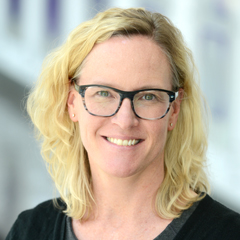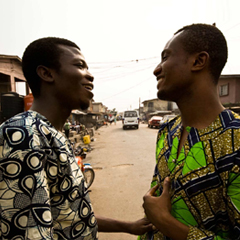Amina Salihu, Senior Program Officer, On Nigeria, and Chantell Johnson, Managing Director, Evaluation, share our approach to equity and inclusion in Nigeria and discuss early learnings about our partners’ work on gender equality and social inclusion.
Our Commitment to Diversity and Inclusion in Nigeria
We are a global foundation that aims to center Diversity, Equity, and Inclusion, especially racial and ethnic equity, in everything we do. We live this through our values and our commitment to the Just Imperative. We recognize the need to contextualize the Just Imperative throughout the different offices and localities in which we work. While systemic inequity and injustice exist everywhere, the path to building structural equity and justice is not the same worldwide. Instead, it must be tailored to meet the needs of specific marginalized groups in particular contexts.
MacArthur has been grounded in Nigeria for over 30 years and first opened our office in Abuja in 1994. Over time, we have established relationships of trust between the Foundation Staff and grantees by working in close consultation and solidarity with our Nigerian organizational partners. It is based upon this trust that we are focusing on a lens of Gender Equality and Social Inclusion, or GESI, in our anti-corruption work. GESI includes the intersections of various dimensions of identity: gender, ability, generation, faith, geography, and ethnicity. A GESI lens can ensure equitable opportunities for more Nigerians, and, as we shared in a Perspectives piece, address the disproportionate harms corruption has on marginalized groups, especially women.
Many of our grantees have centered GESI in their work for years, ensuring all people have access to the resources they need to thrive. We have worked with our grantee partners to learn how to integrate their wisdom and perspectives into our understanding of GESI, including the ways in which it shows up in our program. With our evaluation and learning partner EnCompass, we then set out to assess the state of our grantee partners’ GESI efforts and the landscape for GESI in Nigeria.
What is the GESI landscape now?
When there is diversity in the people doing the work—ourselves and our grantees—it leads to greater credibility overall. This inclusiveness helps our work. So, we must begin by reflecting on what our grantees’ teams and communities look like. Who has access to opportunities, who has a voice, and who has decision-making power? Who do they represent? Are teams equitable? How are they practicing inclusion?
We worked with EnCompass to survey grantee partners and conduct key informant interviews to explore the extent to which they represent and serve marginalized communities. The core questions we wanted to explore included:
- How do our partners define GESI, diversity, and social inclusion?
- How diverse and inclusive are grantees’ staff and communities served?
- What strategies are grantees using to advance GESI goals in their work?
Representatives from 36 organizations, or roughly two-thirds of all grantees, joined a workshop where we explored and discussed the initial findings and what they might mean for our work, individually and collectively. We considered how we might further deepen the integration of GESI throughout the program.
What we found was significant diversity across gender, age, geography, generation, and faith and that our grantees had wide agreement that our collective work needs to proactively include women, youth, and people with disabilities in programming. Ninety-five percent of respondents considered diversity and inclusion considerations very or extremely important to their work.
Many of our partners are actively using strategies to include marginalized people, like seeking out diverse participants by gender and geographic origin for events. And 71 percent report using GESI approaches to create learning plans, including collecting disaggregated data and gender-sensitive indicators.
Many of our partners also see that some people find it difficult to participate in anti-corruption work, with 35 percent noting that women often face more barriers. This reflects our experience seeing women, young people, people with disabilities, and others on the margins bear the brunt of bad governance.
While grantees use overlapping terms (such as equality of opportunity), organizations have many ways of defining GESI, diversity, and inclusion. We are excited to report that over half of grantees who participated in the workshop expressed the desire for additional training to further operationalize GESI in their organizations and in the field. We invite opportunities to be in relationship and in learning mode with our grantees around GESI as we collectively and collaboratively seek more just and improved outcomes around our anti-corruption efforts.
Learning and Next Steps
As we gather information and receive feedback, we approach this work with humility. Data can often be incomplete, and we need these meaningful conversations to understand nuance and contexts so that we may continue to co-create our GESI work in the support of anti-corruption.
Our next phase will consider how we can be more intentional in this work, and how we can enhance our partners’ capacity (not build it) as we learn together. Based on our early findings, we can explore additional avenues for investigation, starting by focusing on how we continue to keep GESI centered in anti-corruption work and how we help operationalize GESI in our anti-corruption efforts.
Further, we heard a desire for more resources, so we are working with grantees to think about how we can strengthen and socialize GESI frameworks through trainings and convenings. We are working to identify opportunities to bridge gaps and support our grantees in making anti-corruption programing more inclusive.
At the end of the day, the most important question is how our work impacts people and their quality of life. We must continue to look again even when we think we have the answers—to seek out critical friends, disaggregate data, and ensure everyone can participate in this collective endeavor to end corruption in a way that supports a more just future.





